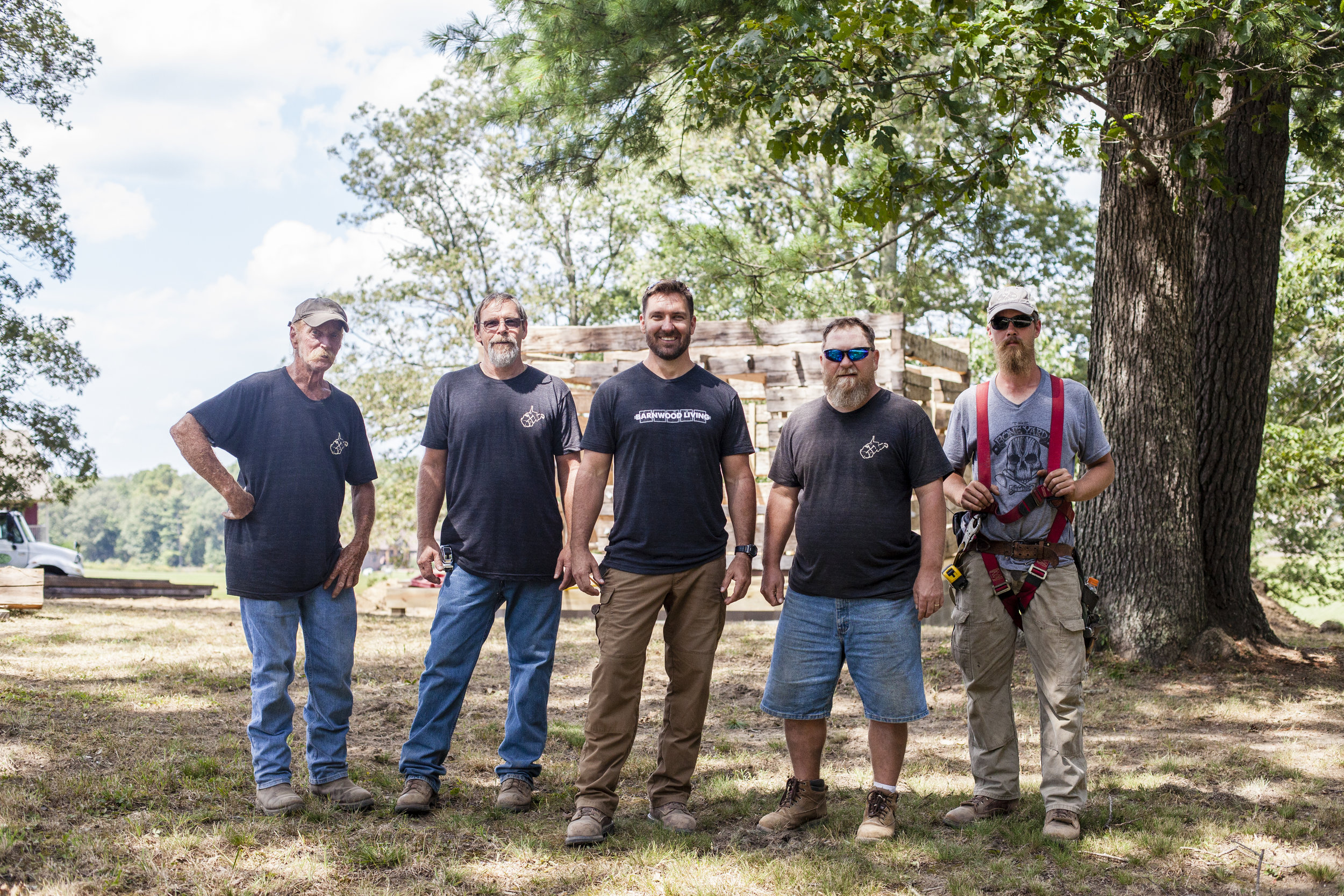Teaching Healthy Habits

By Tiffany Wright
Watch out Big Bird. Tener cuidado Dora. Characters on West Virginia’s Public Broadcasting Station are giving children’s more recognizable characters a run for their money.
The show is Abracadabra and, just as the name suggests, much of the action and excitement takes place inside a magic shop filled with illusions and sleight of hand. The show is hosted by Magician Mike, known in his career as Michael Adelman, D.O., D.P.M., J.D., president of the West Virginia School of Osteopathic Medicine (WVSOM).
With friends Professor Science, Salty the Pirate, Daisy the Gardener and Mr. Oops, along with ventriloquist characters, Joey and Duk, Adelman combines magic, ventriloquism and original music with important lessons about health, nutrition, exercise, safety and science to children ages four to ten.
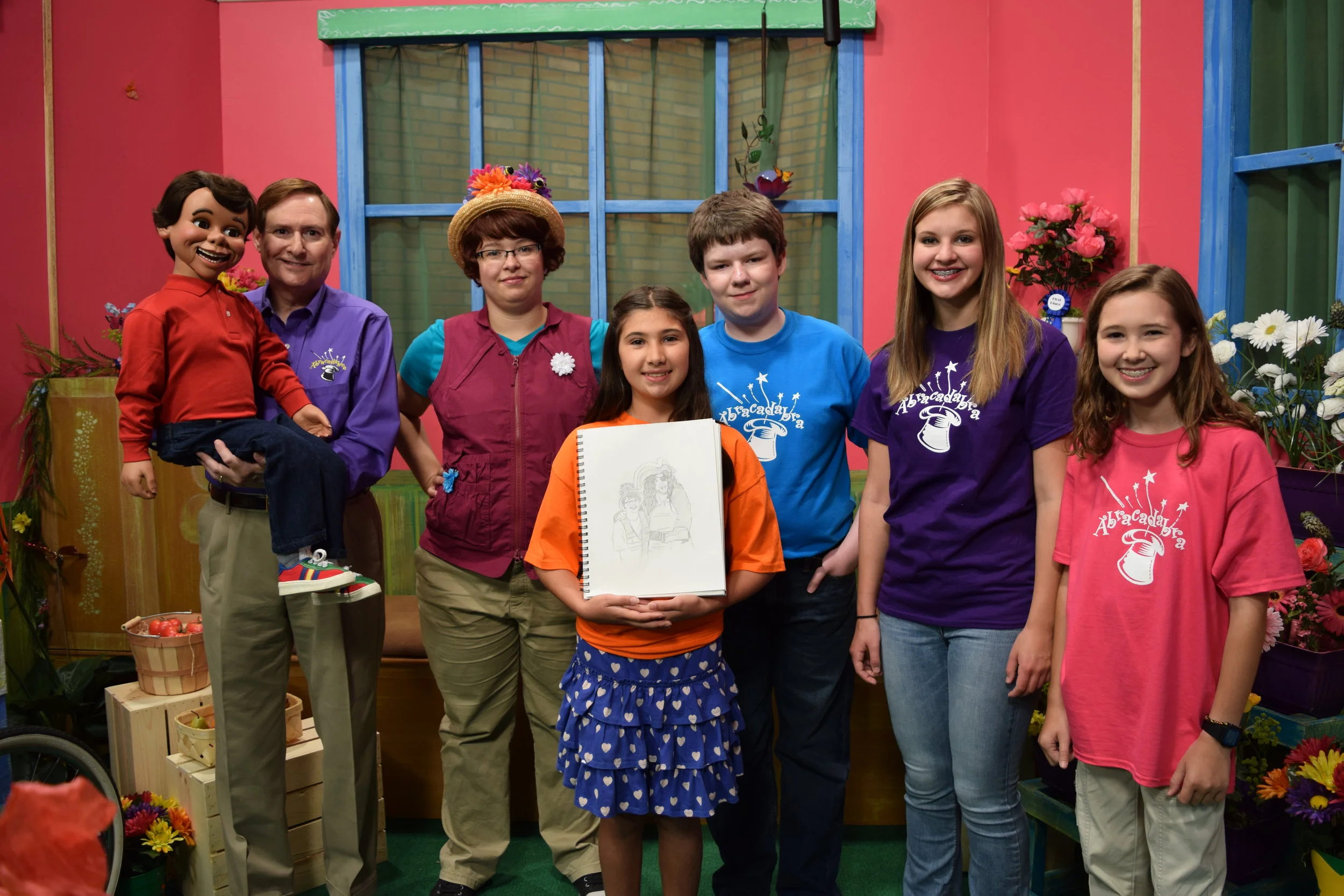
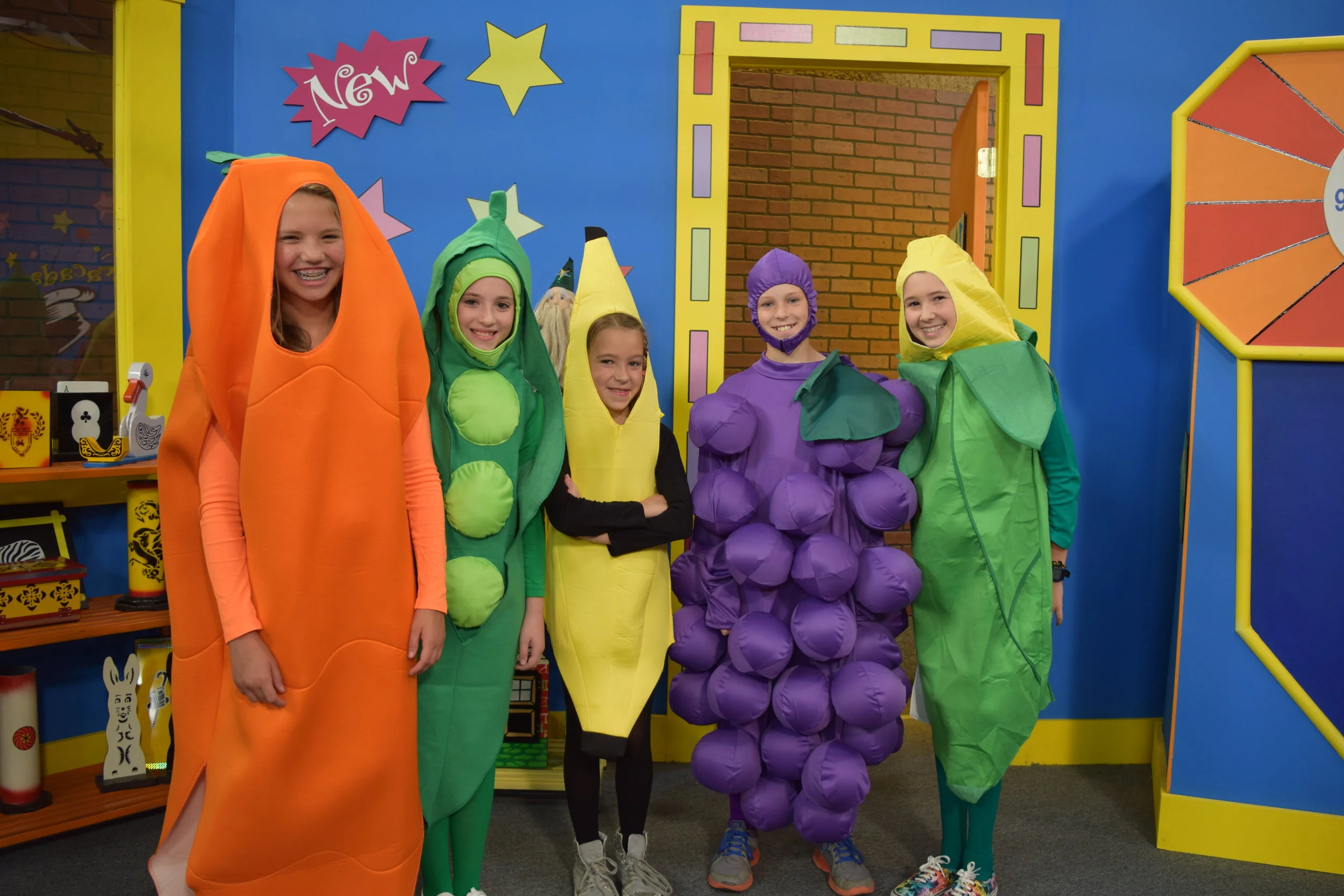
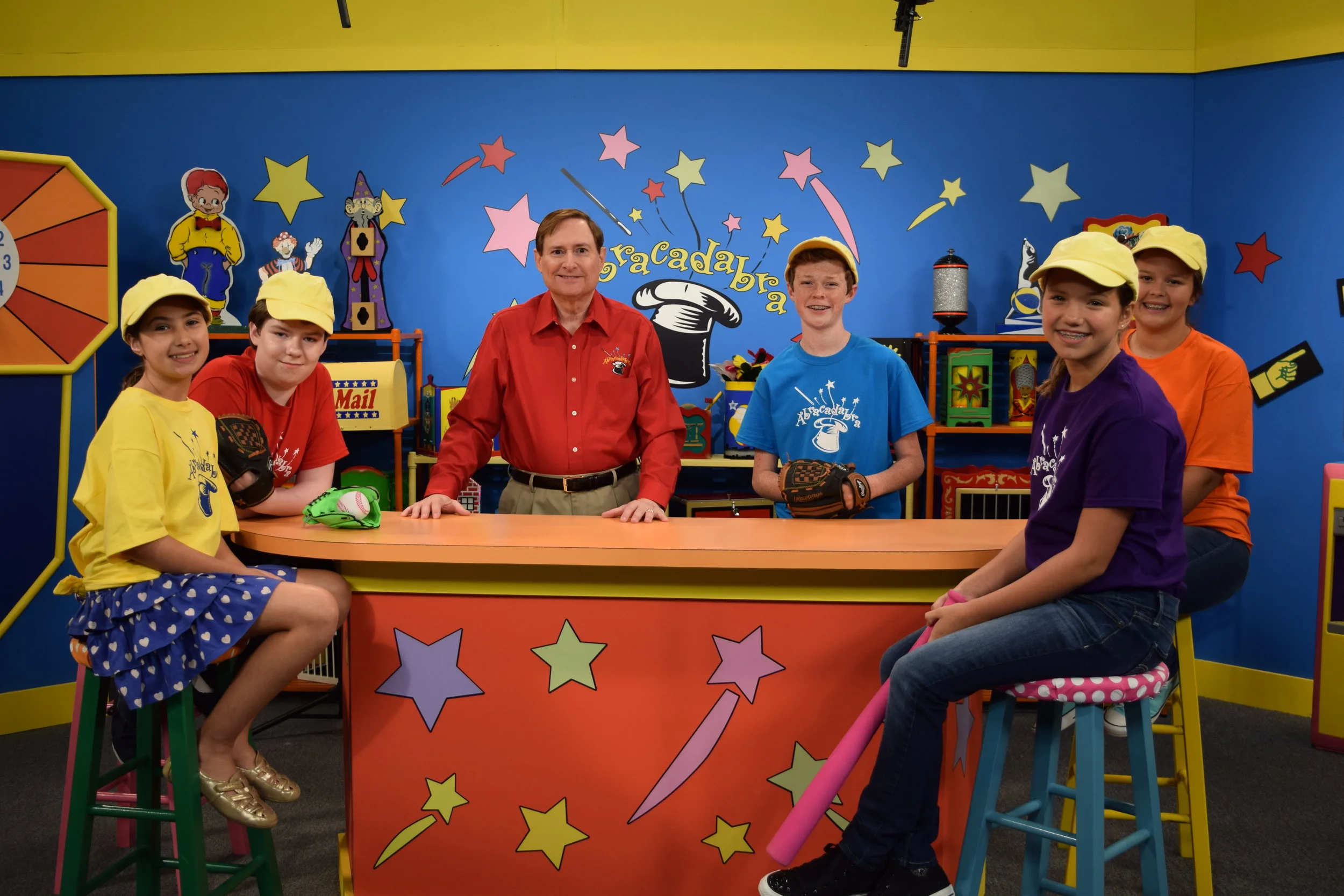
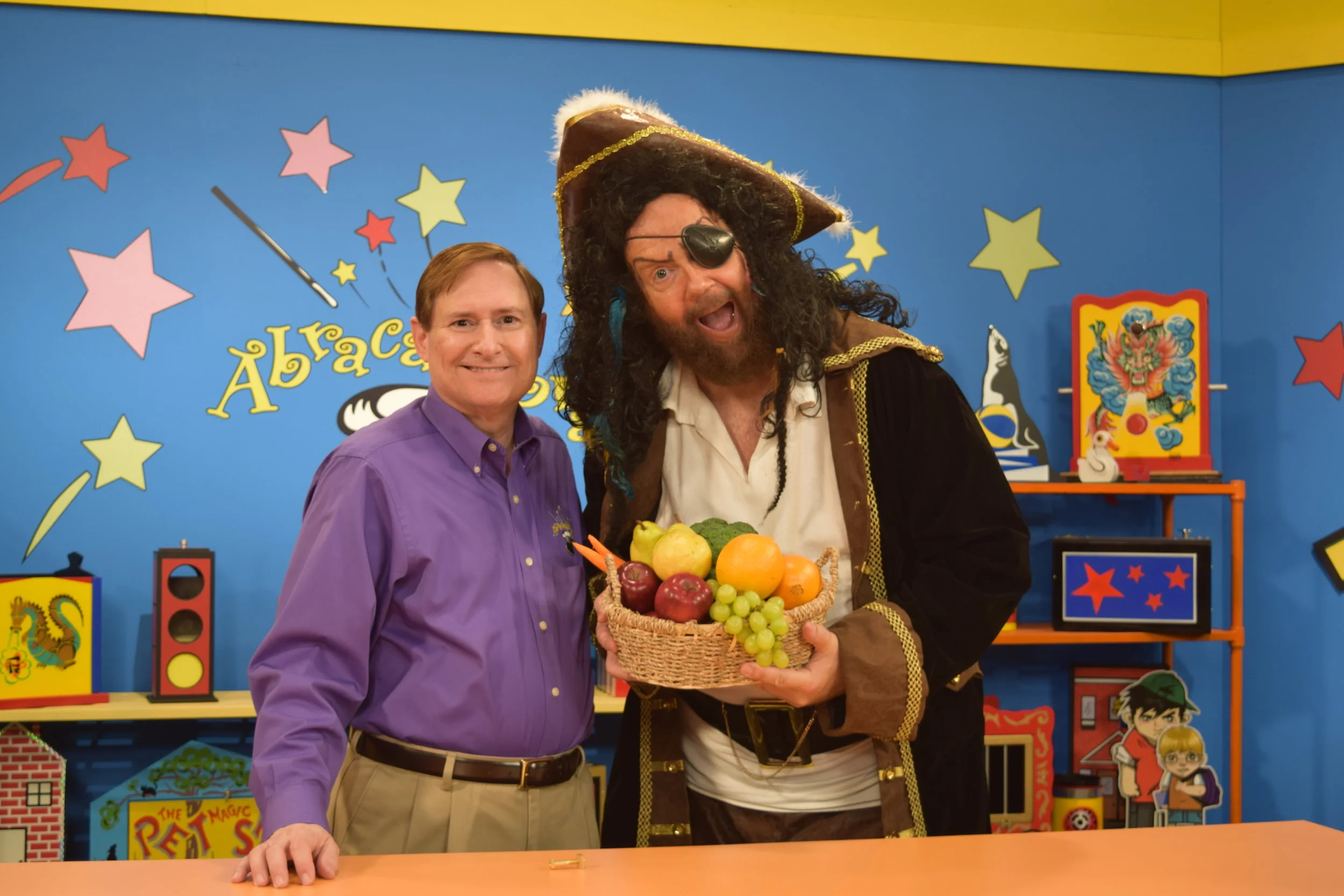
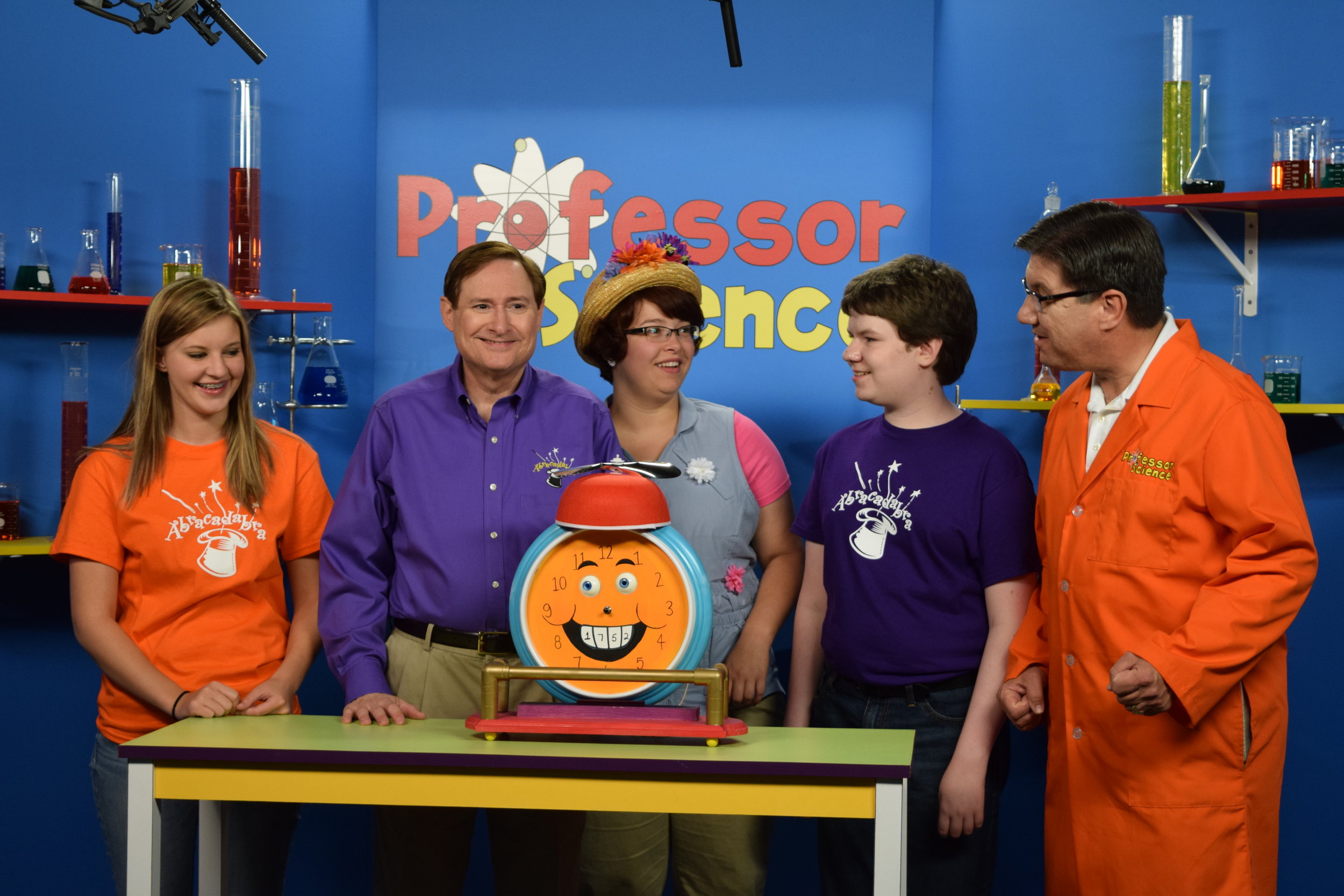
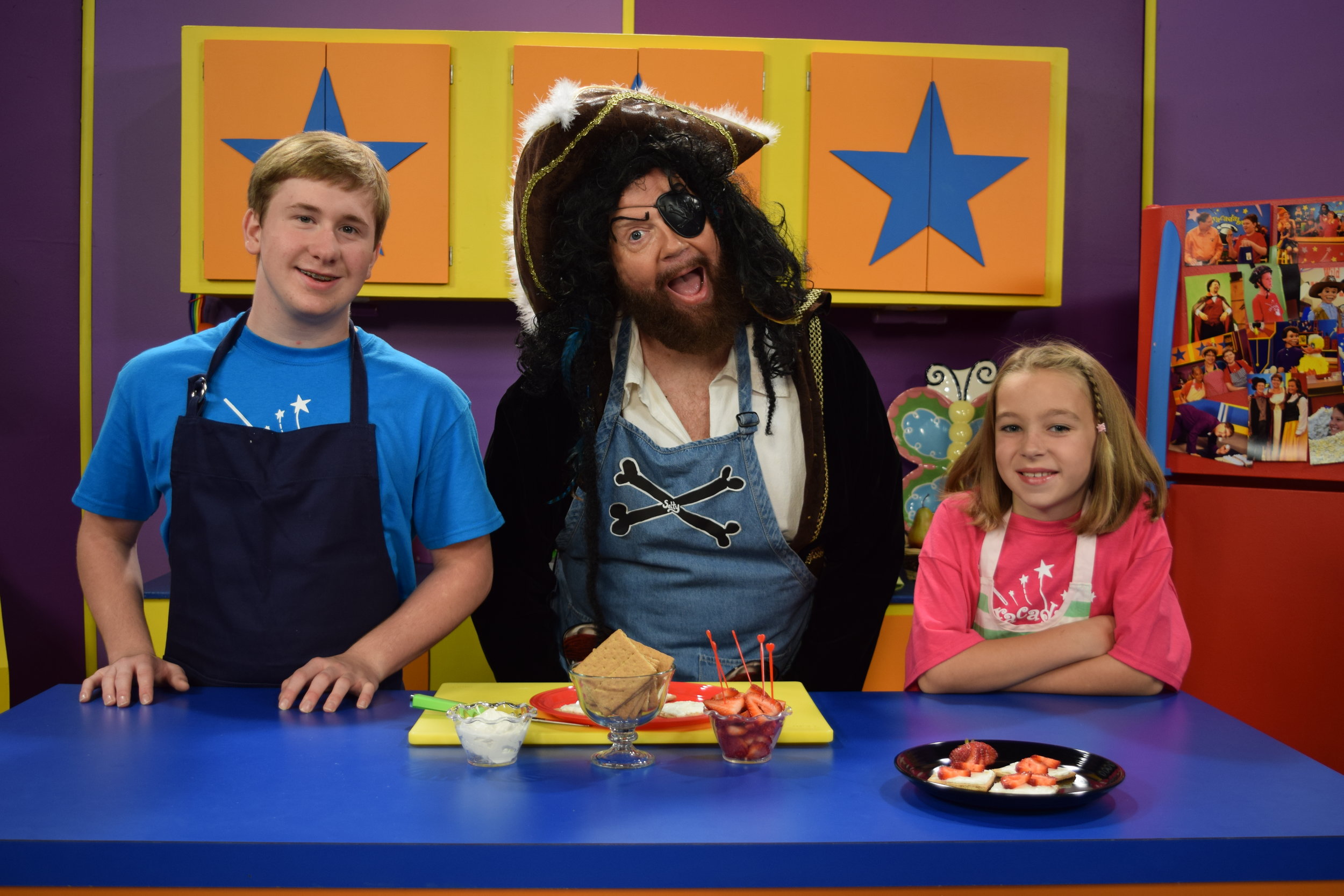
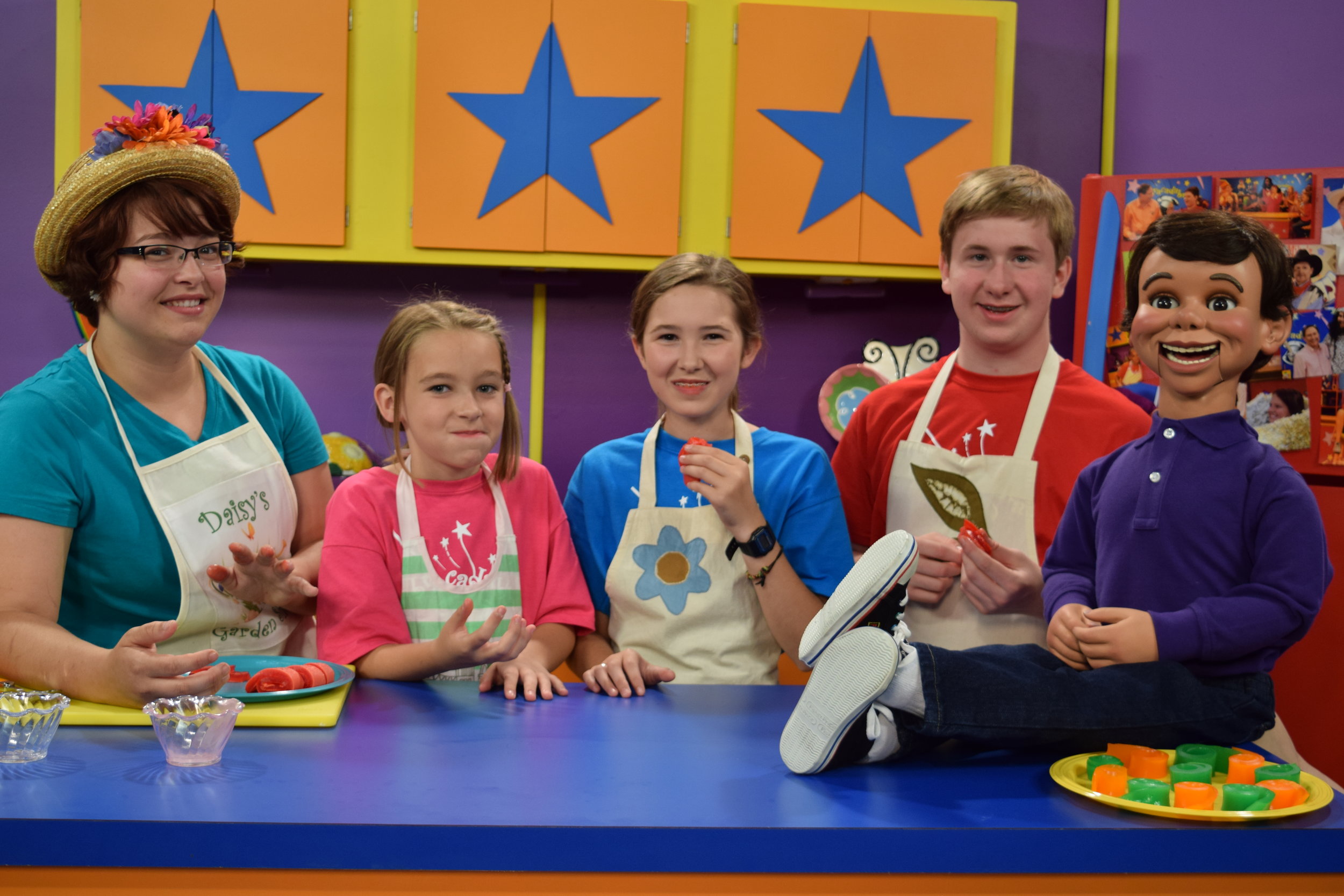
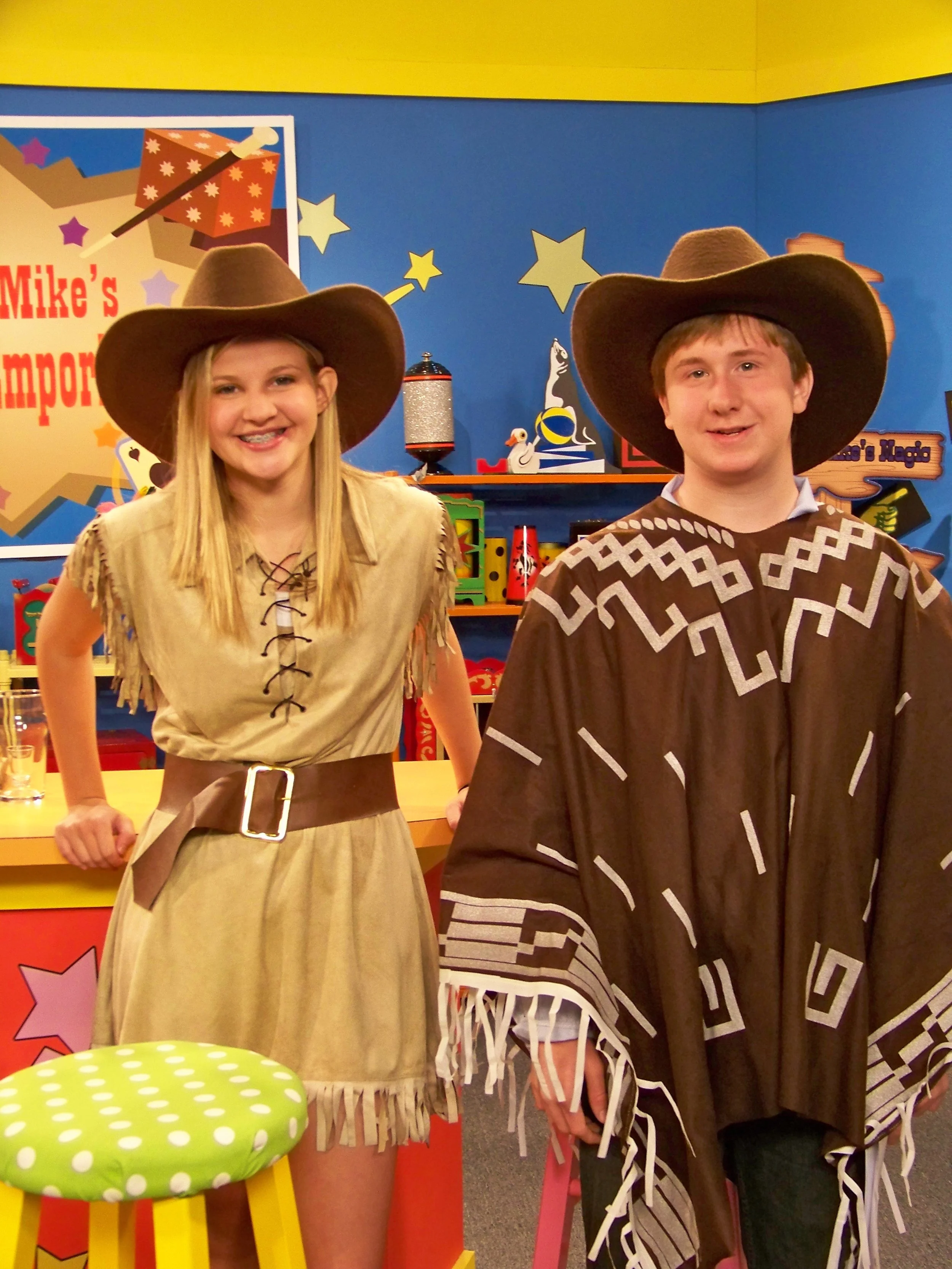
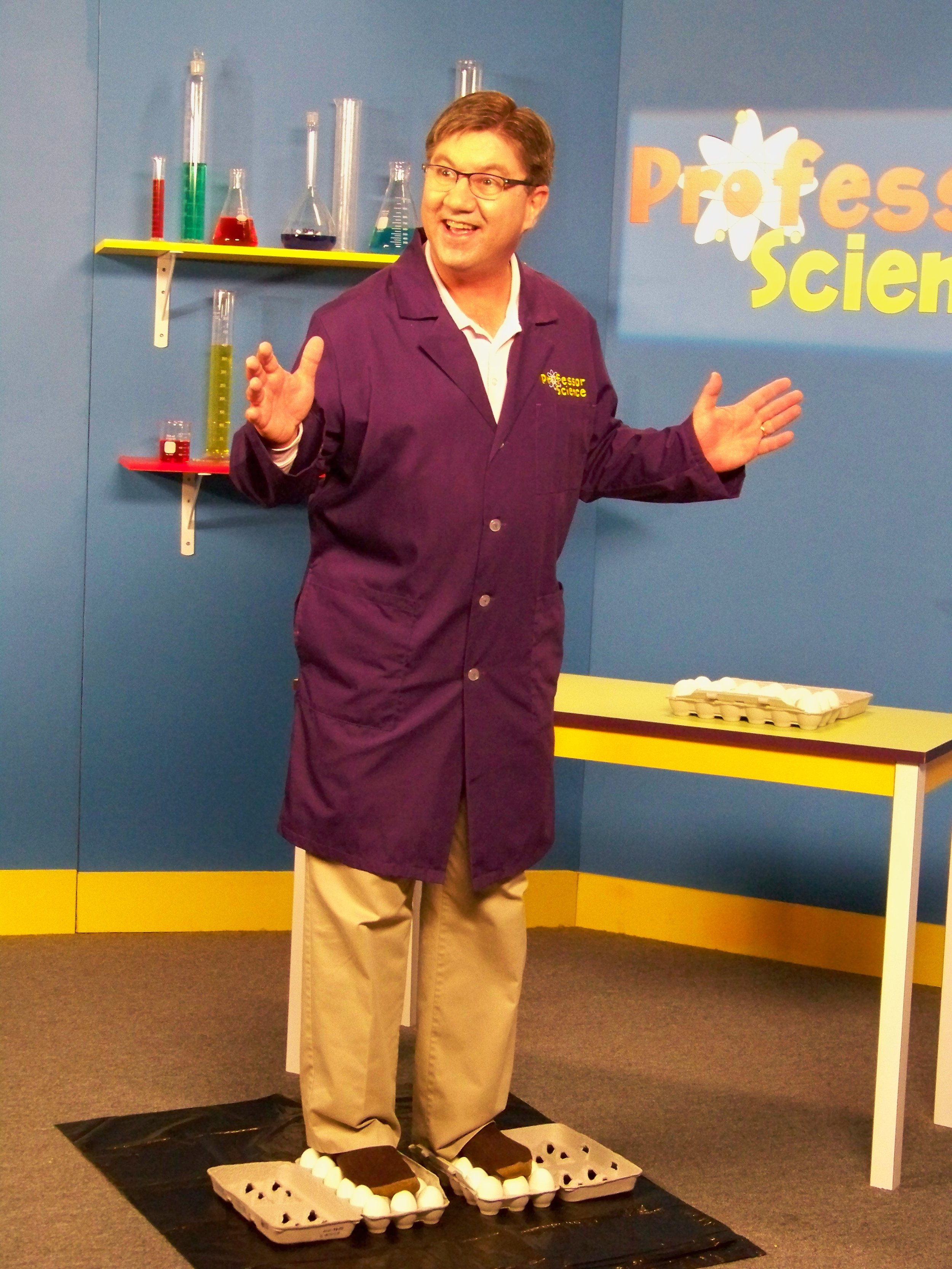
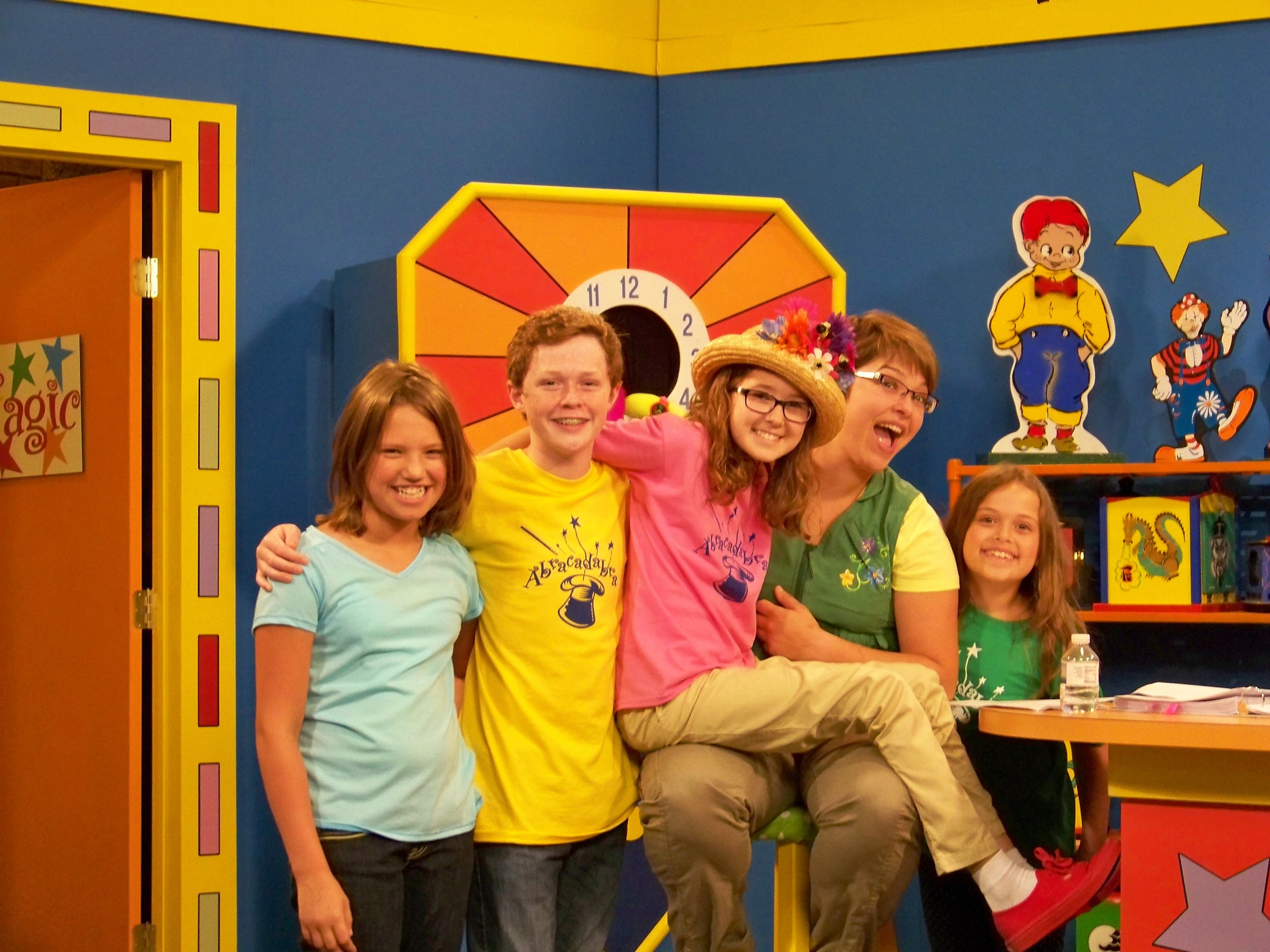
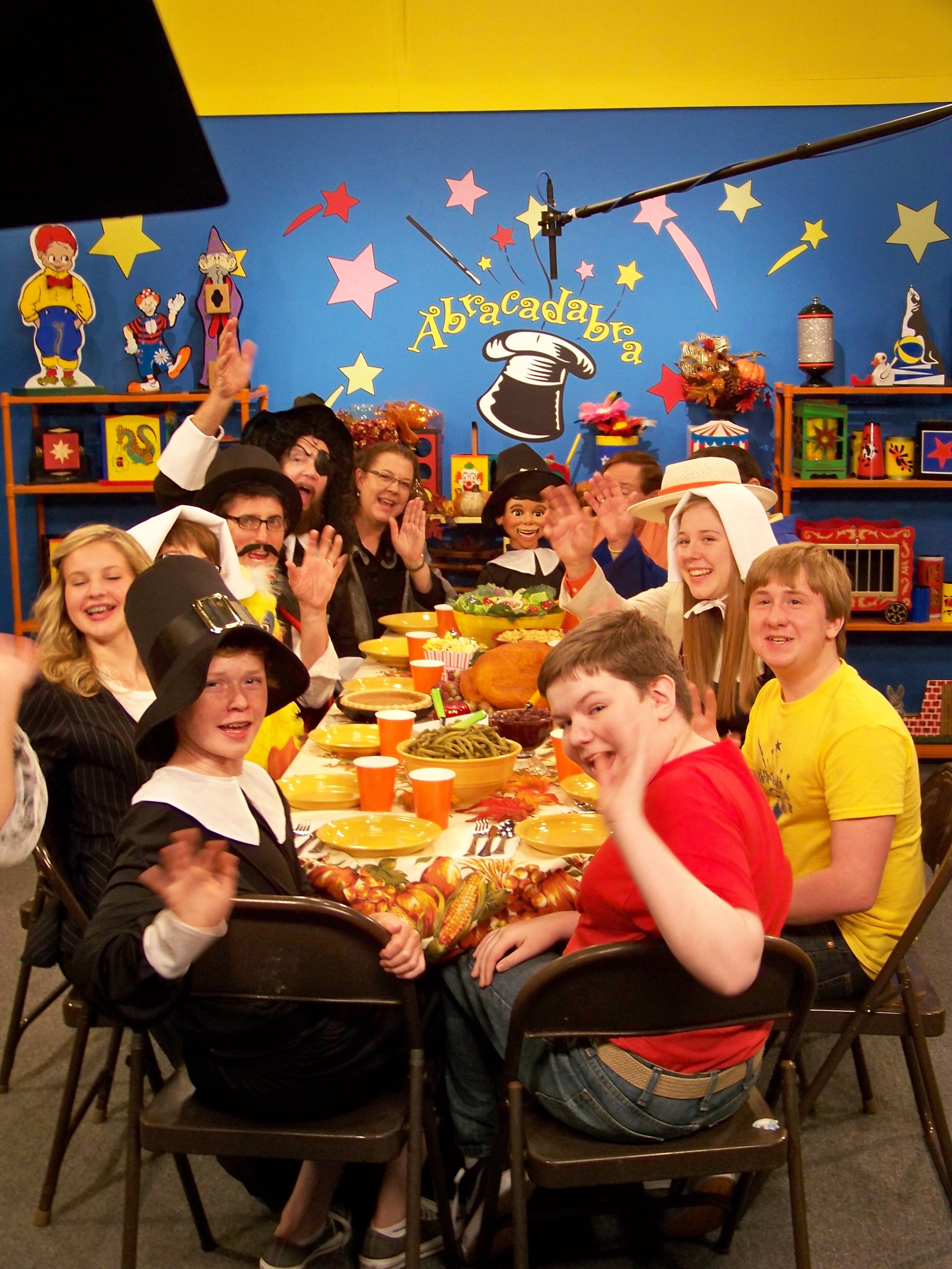
But the show isn’t just about making healthy lifestyle choices. Just as in the real world, smart choices are often threatened by temptation and it’s no different at the magic shop. Nastini, a character overly fond of sugary sweets, can often be found lurking around the shop trying to create mischief. His brother, Nastini-2 also joins in causing mischief. Thankfully, a talented acting cast of local children referred to as “Abra Kids” are on-hand to set things right.
Even with a recurring cast of characters, the true star of the show is Joey.
“When we take Joey into schools to entertain kids, he’s treated like a rock star,” Adelman said. “He’s greeted with cheers and deafening applause. It’s a wonderful feeling to see how he’s connecting with our target audience.”
The 30-minute television show was first introduced in 2011 because of staggering numbers related to childhood obesity. According to the Centers for Disease Control, 17 percent of all children and adolescents in the U.S. are obese—about 12.5 million children. That is three times the rate is was from one generation ago.
The goal of the series it to find a way of educating children in order to prevent diseases such as obesity, heart disease and diabetes from occurring as they reach adulthood, making it important to focus on health and nutritional education in the formative years.
On the statewide level, West Virginia residents are well aware of the state’s disturbing health statistics. West Virginia ranks between first and third in the country for obesity, smoking, cancer deaths, cardiovascular disease, stroke, hypertension, heart disease and diabetes. Adelman is hopeful that Abra will educate and inform younger generation of citizens who will adopt healthy habits.
“Most people understand that a carrot is better for you than a cookie, but I believe it’s truly possible to create scenarios where individuals want to make the healthy choice. They want to put food into their bodies that will nourish them,” he said. “With Abracadabra, we try to demonstrate that and have fun in the process.”
And the show seems to be working.
An evaluation tool was developed to determine overall knowledge improvement for children who watch the show. The percent of correct test questions about health and nutrition was 80.9 percent prior to watching the show, 92.7 percent immediately after, and a 93.4 percent retention rate one month after.
Those involved in the show’s production agree this is no reason to think a corner has been turned in childhood obesity. “There’s still much to do to create a positive and enduring change in eating and exercise behaviors,” Adelman said. “We believe this show can contribute as one of multiple efforts statewide aimed at creating healthier West Virginians.”
Abracadabra is just one piece of a larger puzzle within the Healthy Children’s Initiative at WVSOM—a program that reflects the school’s commitment to help a younger generation of West Virginians lead healthy lives. The program extends beyond the Abracadabra television series and includes a variety of ancillary programming.
Abra Live! events feature cast members in elementary schools, hospitals, community centers, libraries and health fairs. As many as 550 children at one time have benefited from seeing live events. About 10,000 students and educators have experienced Abra Live! since its inception.
Abra Classroom for K-5 grades reinforces the educational concepts from the TV series through live presentations in individual classrooms and includes games about health and nutrition, videos from the series, lectures and direct interaction with the children. Abra Classroom learning has a core message identified by Abra and the educator. The program encourages children to dig deeper into a topic, encourages open discussion, provides the opportunity to ask questions and motivates students and their families to apply those concepts.
The show’s website includes games about health and nutrition, science experiments, healthy snacks, magic tricks that children can learn and other activities. It also provides educational materials for parents and teachers. Then there is a Facebook page that offers a behind-the-scenes look at the production, as well as health snack recipes and educational messages. The YouTube channel allows viewers to watch the show anytime.
The show also produces publications like activity books that introduce young children to the making healthy choices. Educators can use the books in their classrooms.
“The response from our Abra Live! presentations is amazing,” Nemitz said. “The children are so excited and enthusiastic that we feel like rock stars. We’ve also received positive feedback from the Abracadabra shows on TV. Parents are sharing with us that their children ask to try vegetables after seeing the show.”
The show’s characters have become more recognizable in public—with some children seeking out their favorites. Michelle Warfield and her daughters had a run-in with two of Abra’s characters.
“Thank you Mike and Daisy for stopping to speak to my daughters in Walmart,” the family wrote into the show. “They really enjoyed the magic trick. We appreciate you taking your time out for them. They love your show so much.” The core of the Healthy Children’s Initiative continues to be the television show. According to Adelman, Abracadabra lessons range from teaching children to lead a healthy lifestyle, using safety precautions and stimulating an interest in science to developing acceptable social behaviors. Topics have addressed bullying, food that farmers provide, STEM (science, technology, engineering and math), teaching social skills and special holiday episodes.
One parent acknowledged the impact the show has had on her children by stating, “We have to tape the Abracadabra episodes so that my kids can watch them when they get home from school.”
“Abra Kids” who have the privilege of being part of the cast know that the show’s messages are important.
“Abracadabra has had a huge impact on my life,” said Jon Brennan, acting president of the Children’s Theatre of Charleston and a cast member. “I’ve learned a lot, from fun things like magic tricks to more important things like healthy eating facts.”
Brennan has participated in the show for four of the five seasons. “It’s given me the opportunity to work with my friends and make some new ones on an amazing show that’s had a huge impact on people around me,” he stated. “And I get to act, so that’s always a plus.”
Seasons 1-4 air daily on West Virginia Public Broadcasting. Season 5 is currently in the post production process and expected to start airing in 2017.
The Healthy Children’s Initiative and Abracadabra television show was presented with the 2013 Governor’s Award for Excellence in Rural Health during the West Virginia Rural Health annual conference. This award is presented to an individual or organization in recognition of exceptionally meritorious contributions to the improvement of health for rural West Virginians. It honors creative work of particular effectiveness in applying knowledge or innovation to the betterment of community health.
Abracadabra is endorsed by the WV Department of Education and supported by the WVSOM Board of Governors and WV PBS. The series has been made possible by contributions from sponsors including Charleston Area Medical Center, Highmark Blue Cross-Blue Shield of West Virginia, BrickStreet Foundation and West Virginia Mutual Insurance Company.
For games and activities, as well as parent/teacher guides, visit the show’s website at www.abracadabra.org.
